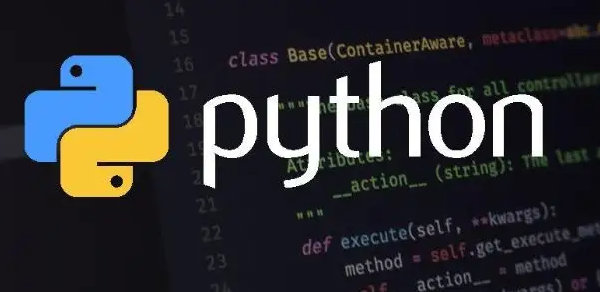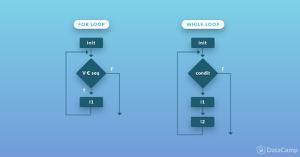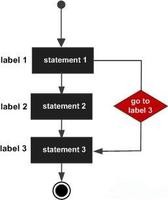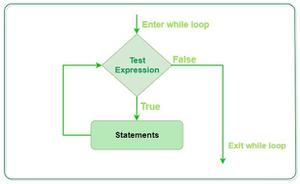详解python迭代循环和用户输入

FOR(iteration) 循环
for 循环是 Python 中最常用的迭代机制。Python 中几乎所有的结构都能被 for 迭代。包括列表,元组,字典等。另一种常用的循环是 while 循环,但是 for 循环会是你最常见到的循环。
什么是 while 循环
while 循环会判断一个初始条件,条件成立则执行一次迭代,每次迭代完成后重新判断条件,如果成立则继续迭代,否则退出循环。
通用语法
# Set an initial condition.game_active = True
# Set up the while loop.
while game_active:
# Run the game.
# At some point, the game ends and game_active will be set to False.
# When that happens, the loop will stop executing.
# Do anything else you want done after the loop runs.
每次循环前都要初始化一条判断为 true 的条件。
while 循环中包含条件判断。
条件判断为 true 则执行循环内代码,不断迭代,判断。
判断为 false 则退出循环。
示例
# The player's power starts out at 5.power = 5
# The player is allowed to keep playing as long as their power is over 0.
while power > 0:
print("You are still playing, because your power is %d." % power)
# Your game code would go here, which includes challenges that make it
# possible to lose power.
# We can represent that by just taking away from the power.
power = power - 1
print("
Oh no, your power dropped to 0! Game Over.")
用户输入
在 Python 中你可以利用 input() 函数接受用户输入。函数可以接受一条提示信息,等待用户输入。
通用用法
# Get some input from the user.variable = input('Please enter a value: ')
# Do something with the value that was entered.
示例
如下示例,提示用户输入名字,加入到名字列表中。
# Start with a list containing several names.names = ['guido', 'tim', 'jesse']
# Ask the user for a name.
new_name = input("Please tell me someone I should know: ")
# Add the new name to our list.
names.append(new_name)
# Show that the name has been added to the list.
print(names)
以上是 详解python迭代循环和用户输入 的全部内容, 来源链接: utcz.com/z/521842.html






